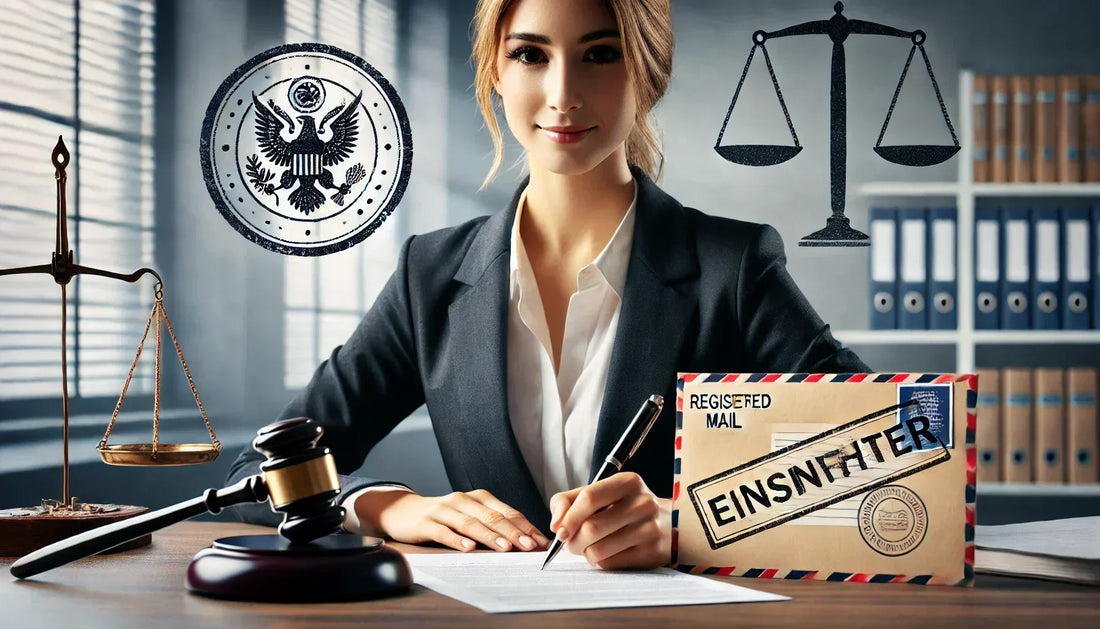
Sample letters for authorities – your safe way against arbitrariness
Share
How to assert your concerns with authorities with a well-written letter
When dealing with authorities, it can often happen that applications go unanswered, notices are issued incorrectly, or complaints are not processed. In such cases, it is important to present your concerns clearly, objectively, and in a well-structured manner. A professionally written letter can help ensure your request is processed more quickly and taken seriously.
But what should such a letter look like, what points are important, and what should you pay attention to? In this article, you'll learn how to create an effective sample letter and what's important when doing so.
When does a formal letter to an authority make sense?
There are several situations in which a well-structured letter can help provide clarity or elicit a response. Some typical examples include:
✅ If an official notice or decision is not comprehensible
➡ Sometimes notices don't provide sufficient explanations or important information is missing. A factual inquiry can help clarify any ambiguities.
✅ If a request or complaint remains unanswered
➡ Authorities are obligated to process requests within a reasonable timeframe. If no response is received, a written reminder may be appropriate.
✅ If confirmation or a deadline is required
➡ In some cases it is necessary to request an official confirmation or a binding response within a certain time period.
✅ If a correction or re-examination of an administrative act is necessary
➡ If a decision is incorrect or incomplete, a well-written statement can help the authority to review the matter again.
How should a letter to an authority be structured?
An effective letter to a government agency should include the following elements:
1. Subject and file number (if applicable)
The subject should be concise and clearly worded, e.g.:
📌 "Request to process my application dated [date]"
📌 "Objection to the decision of [date], reference number: [XX]"
An existing file number or reference number should always be provided to enable faster assignment.
2. Salutation and polite introduction
A formal letter should begin with a polite greeting, e.g.:
➡ "Dear Sir or Madam," or – if known – "Dear Mr/Mrs [Name]"
A short introductory sentence describing the concern can also be helpful.
3. Factual description of the issue
The main body of the letter should be clear, factual, and precise. Important points include:
✔ A brief description of the facts
✔ Relevant details (e.g. date of notification, previous communication)
✔ If necessary: References to relevant regulations or documents
Example:
"On [date] I submitted an application on [topic]. To date, I have not received any response. I therefore request confirmation of receipt and information on the current status of the application."
4. Demand or desired action
After describing the situation, it should be clearly stated what is expected from the authority. This could be a response, a deadline, or a correction.
Example:
"I request written confirmation of my request by [date] at the latest. If no response is received by then, I reserve the right to take further steps."
5. Conclusion and greeting
At the end, there should be a polite greeting, e.g.:
"Best regards
[First and Last Name]"
If relevant, contact details or attachments (e.g. copies of documents) can also be mentioned.
Tips for successful communication with authorities
🔹 Be concise and precise: Avoid long and complicated sentences. Clear, factual writing is more likely to be processed than emotional or unstructured text.
🔹 Stay polite: Even if a situation is annoying, a respectful tone increases the chances of a constructive solution.
🔹 Set deadlines: If an authority does not respond, it can be helpful to set a reasonable deadline (e.g. two weeks).
🔹 Secure evidence: Important letters should be sent by registered mail with return receipt or by email with read receipt in order to have proof if needed.
🔹 Check the legal basis: If possible, a reference to a legal basis can strengthen your argument. If you are unsure, we recommend seeking professional advice.
Conclusion: A well-written letter can make a big difference
Whether it's a lack of response, an incorrect notice, or a missing confirmation, a clear and professionally written letter can help communicate your concerns effectively.
It's important to remain objective, present relevant information clearly, and set a reasonable deadline for response. In many cases, a structured letter is sufficient to ensure prompt processing. If an authority still doesn't respond or the problem persists, it may be advisable to consult a specialist or advisory center.
You can get many ready-made sample letters in our shop





1 comment
Ich finde die Idee super. Habe mir auch ein Musterschreiben erworben und direkt erfolgt mit gehabt. Weiter so